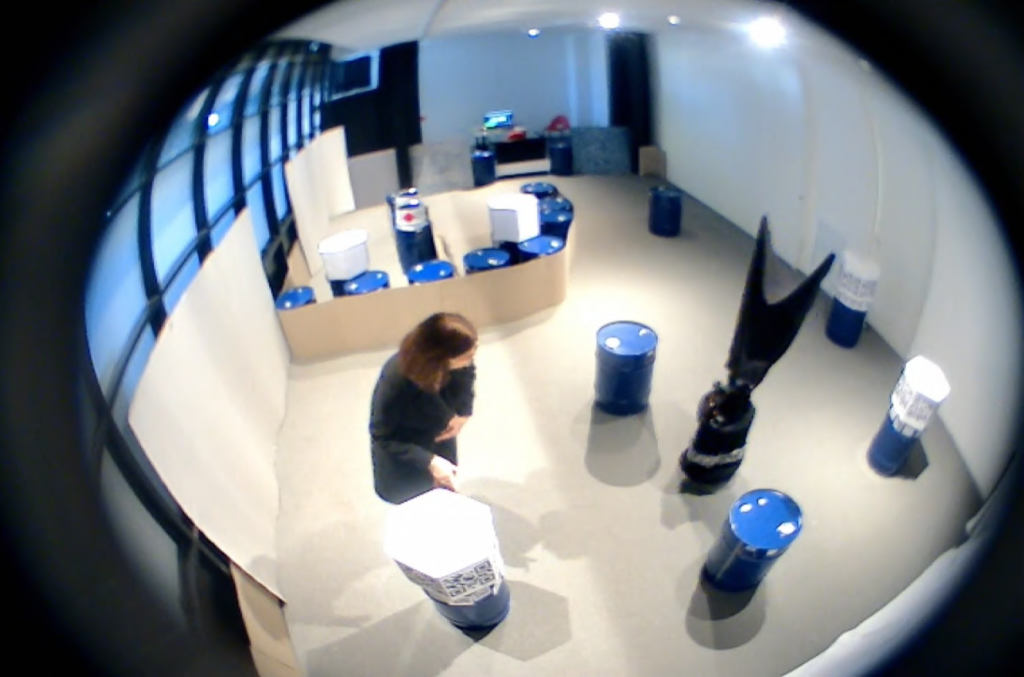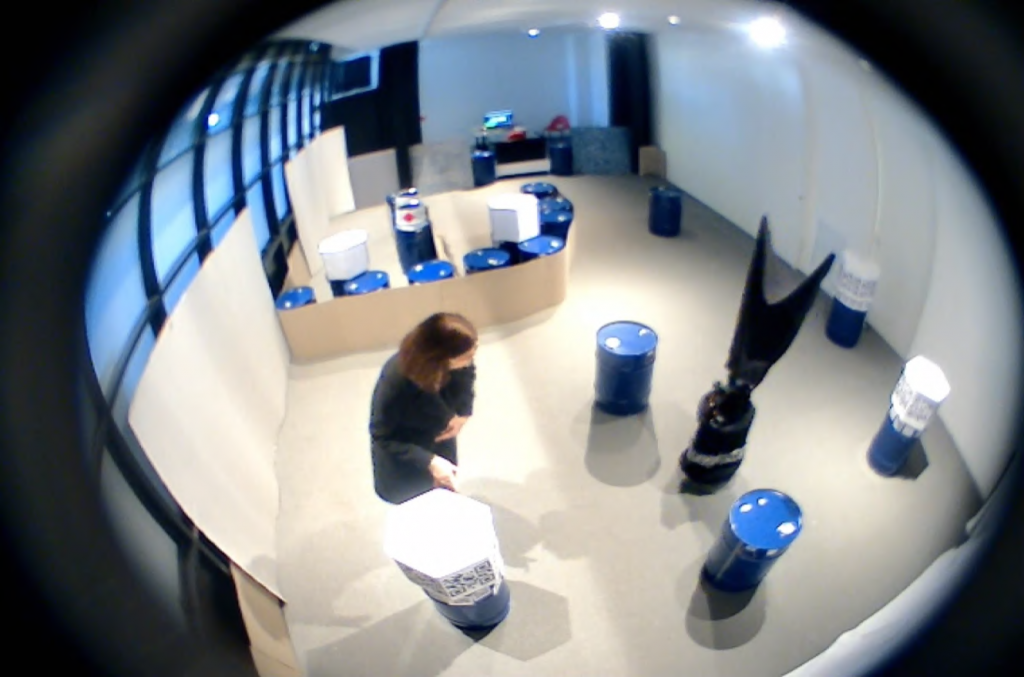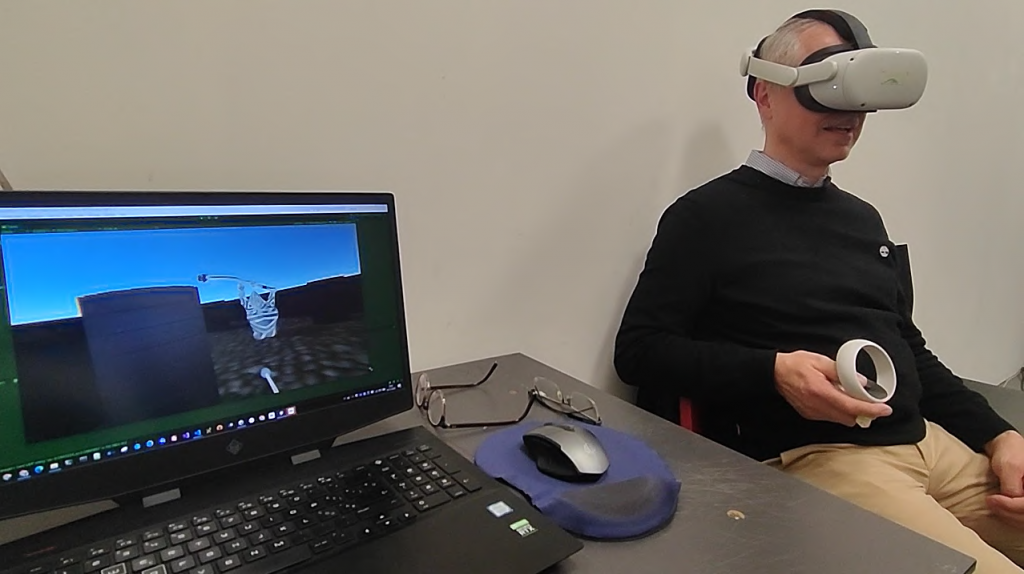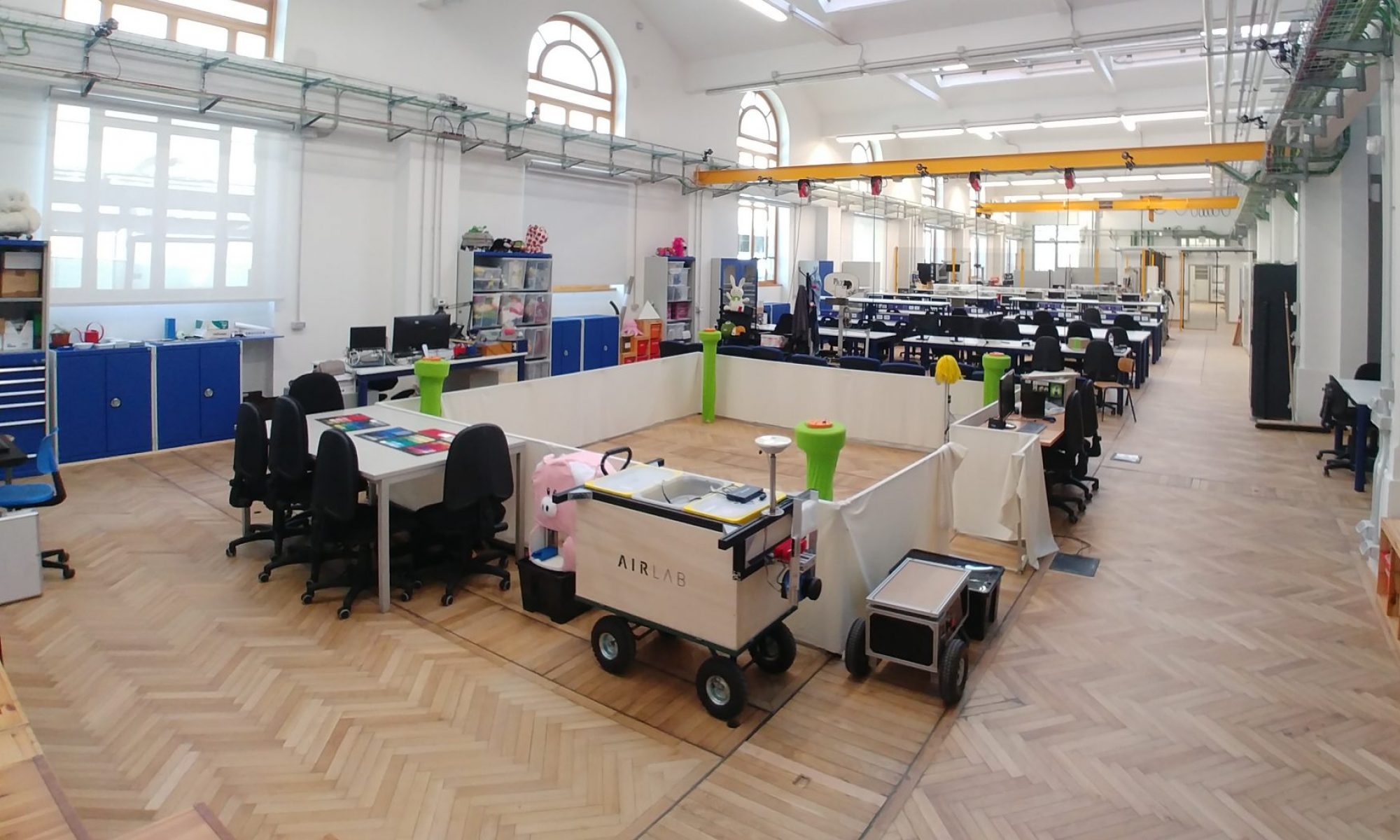
In “the Game”, since more familiar creatures are created than in “The Room”, the main objective is to study whether the specific robot designs (shape, movement, but also control and sensory perception systems) are capable of allowing human subjects to interact within the specific contexts that are given to them. For example, are the human subject able to complete together and escape room that requires them to instantiate an emergent communication, to exchange specific types of information according to our game design? Are they feeling empathy for these other creatures they are interacting with?
Thus, the subject’s motivations are quite structured during “the Game”, and the main research question is whether our expectations are met, with respect to the quality of our system and its ability to allow the interaction to unfold according to this structure. And also, if this is not the case, to what extent the subjects deviate from this structure, and when.
In this track we ask ourselves if the human subjects are able to instantiate an emergent communication, to exchange specific types of information. As this is necessary to complete the game, the amount of victories quantifies the quality of the setup.
PROJECTS
- Odile’s Escape Room
The focus of this phase is on the experience of the “Visitor”, the user interacting with the robot, playing with a physical robot in the real world, and on the design of the robot’s body and the expressive capability of its motions. The robot is controlled in a wizard of Oz manner so that the control system does not need to be precise or ready for testing with inexperienced users.
Project By: Erica Panelli
Supervision: Federico Espositi and Andrea Bonarini
Read the Thesis here.
- The Virtual Maze



The focus of this phase is on the experience of the “Controller”, the user controlling the robot which is playing in the real world, and on the design of the sensory translation system and the expressive capability of the human translations.
Project By: Giuseppe Epifani (phase I); Maurizio Vetere (phase II)
Supervision: Federico Espositi and Andrea Bonarini

